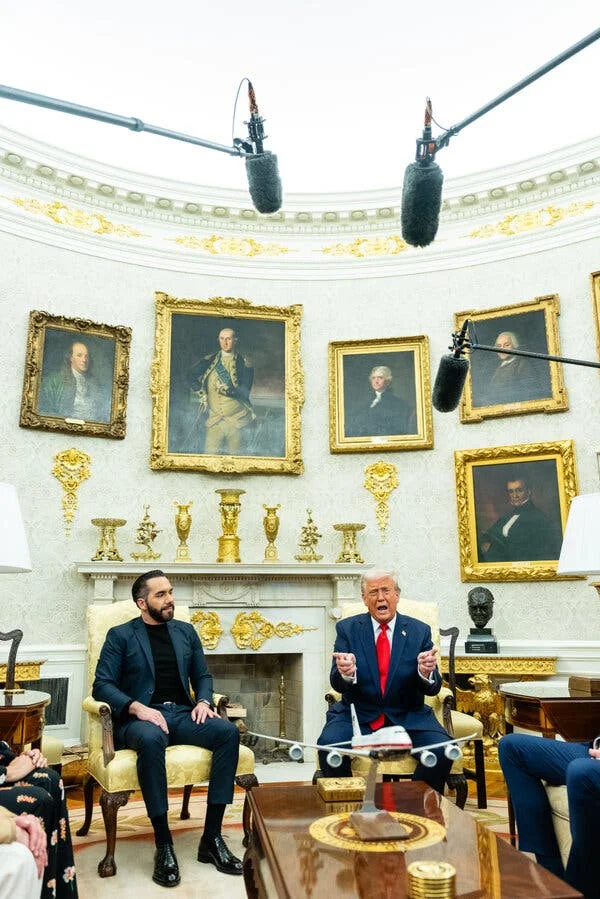
Tensions Rise in the Oval Office Over Deportation of Kilmar Abrego Garcia
In a dramatic display of political tension, President Donald Trump hosted El Salvador's President Nayib Bukele in the Oval Office on Monday, as they addressed the contentious case of Kilmar Abrego Garcia, a Maryland man wrongfully deported to El Salvador. This incident has raised eyebrows, challenging the accountability of the Trump administration in complying with a Supreme Court ruling.

The Supreme Court recently ordered the Trump administration to facilitate the return of Garcia, who was deported under erroneous claims of being a member of the notorious MS-13 gang. Yet, faced with this legal directive, the administration has framed the situation as an internal matter that does not require compliance with judicial authority.
The Oval Office meeting, however, took a bizarre turn as Trump and Bukele appeared to mock the serious plight of Garcia, displaying a disconcerting nonchalance. During the meeting, Secretary of State Marco Rubio asserted that no court has the right to dictate foreign policy, while Attorney General Pam Bondi downplayed Garcia's situation by stating it was ultimately El Salvador's decision regarding his return.
Trump’s condescension toward the media also shone through when he attacked CNN correspondent Kaitlan Collins, reducing her query about Garcia's return into an opportunity to disparage the news outlet. His remarks cast doubt on the administration’s transparency and willingness to address pressing human rights issues, especially those pertaining to American citizens wrongfully detained abroad.
In a direct interaction concerning the case, Bondi reiterated that Garcia's status as an alleged gang member complicates matters, suggesting the United States had no responsibility for his repatriation. This assertion, however, raises questions regarding the validity of the government’s original justification for his deportation, which was labeled as an administrative error.
Critics of the Trump administration have expressed outrage at the lack of urgency in rectifying Garcia’s wrongful deportation. Legal experts argue that this scenario may signify a broader trend of executive overreach, wherein the administration appears to maneuver around the judicial rulings designed to protect citizens' rights.
As the situation develops, the fundamental question arises: how far will the Trump administration go in resisting the Supreme Court’s mandates while navigating foreign relations? This case not only influences the immediate fate of Kilmar Abrego Garcia but also sends ripples through the judicial system regarding the balance of power among government branches.
The implications of this incident are profound, and many are left wondering about the true cost of executive defiance in matters of human rights and legal due process. As public interest in Garcia's situation grows, it is imperative to reflect on the broader moral responsibilities held by our government.